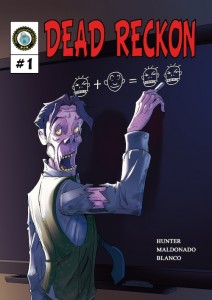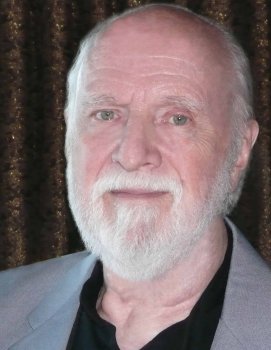[A reposting of the author’s comment on the Classic Horror Film Board about the passing of Richard Matheson.]
By James H. Burns: What did I write, now, over three decades ago, in my intro to the Twilight Zone mag interview….
Something like, of fantasy and science fiction’s top ten ambassadors to the worlds of celluloid, Richard Matheson would be three of them.
I was referring, of course, to writers!
And Matheson, as has already been pointed out here, did oh so much more than that!
I think it’s safe to say, at the least, he’s one of the great American fantastists.
A couple of years ago, I took a look at that original manuscript, about twenty thousand words, to begin the process of refining it for republication —
I think perhaps as much as a fourth — or more — didn’t make it to the final article, although it ran as a two-parter.
I also began doing a bunch of research, reading much of the work Matheson had produced in the last three decades.
And, as some of you know, particularly in the ’80s, as I recall, there were a PLETHORA of scripts for films and mini-series, all well paid for, that never saw the light of day (or, for that matter, the spectrum of the old cathode tube).
I couldn’t help but recall Matheson’s comment that when a film or TV project didn’t turn out well, it wasn’t as though you could run down the street, script in hand, yelling, No, no, look at what it was supposed to be!
😉
And I know there had to be some happiness for him, in seeing some such older projects, printed in some of the limited edition volumes that seemed to have had a Matheson vogue there, for a while.
It is the least of his accomplishments, perhaps — and one he may not have been pleased by, but I wonder how many people realize that he could be considered the father, or grandfather, anyway, of the zombie film phenomenon.
George Romero, in a statement that gets too often overlooked, stated that Night of the Living Dead was originally written as an adaption of I Am Legend.
(Matheson once told me he never thought of suing; that such things could be more bother than he felt, sometimes, anyway, they were ultimately worth.)
I sometimes forget that I first met Matheson (by phone, that is), when doing a different article, a preview of Somewhere in Time, for Steranko’s Prevue.
In all of our conversations, Matheson was indeed the gentleman you’ve heard him described as.
And if he resented the hours it took to chat, he certainly never gave a hint of it.
I remember how thrilled Carol Serling was to learn that Matheson would be in the Twilight Zone magazine…
And how good an idea Matheson thought it was, to perhaps host his own anthology show!
(Matheson remained very grateful to Rod Serling. Whenever there was a script opportunity that Serling didn’t have the time or inclination to do, he would think of recommending Matheson, or one of his compadres.)
I also remember reading What Dreams May Come, in preparation for the interview, and saying to Matheson that it almost seemed like a primer, a gentle one, at that, for those getting ready to near the end.
(In the years to come, Matheson would write more about such realms of possibility.)
Matheson said that that was indeed his intention with the novel.
I know that Matheson’s legacy will be immense, one of the most basic being that at any time, anywhere, someone will be able to pick up a Matheson short story, and read those most often good words.
And it may be impossible to describe accurately the writer’s influence.
But late this afternoon, on this oh so humid day in New York, just about thirty miles from the Brooklyn where Matheson grew up, as the electricity raises in the local atmosphere, the thunder indeed just beyond the range of doubt: I can’t help but hope, simply, that Matheson’s final curtain was a kind one.


